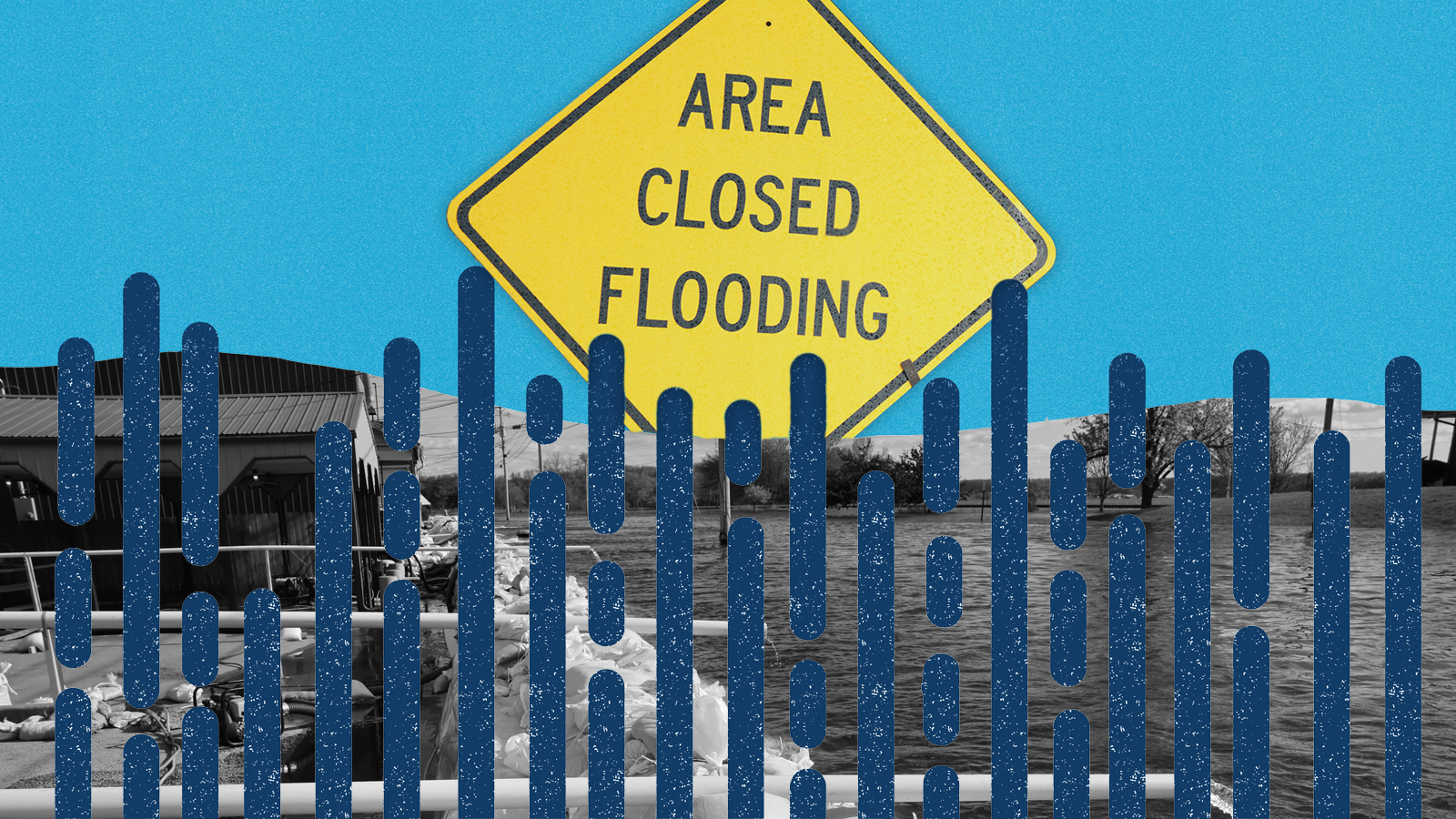‘Geronimo the alpaca is irresistibly cute - hence the public outcry’
Your digest of analysis and commentary from the British and international press

- 1. Alpaca owners must accept slaughter is a necessary evil
- 2. Emojis aren’t debasing language – they’re enriching it
- 3. A-level results week is no time to lecture our neglected children, minister
- 4. I’ve hit my climate tipping point
- 5. R Kelly’s trial begins today and black women are supposed to be grateful - but I refuse
A free daily email with the biggest news stories of the day – and the best features from TheWeek.com
You are now subscribed
Your newsletter sign-up was successful
1. Alpaca owners must accept slaughter is a necessary evil
David Sapsted in The Times
on a doomed animal
“Let’s be honest: the public outcry that has surrounded the death sentence imposed on Geronimo the alpaca has little, if anything, to do with misgivings over the efficacy of existing Department for Environment, Food and Rural Affairs (Defra) TB tests on camelids,” writes David Sapsted in The Times. “Rather, it is because Geronimo, with his doe-like eyes, quizzically amused expression and knot of curly black hair, looks so irresistibly cute.” But the debacle also shows that something is “awry” within the UK’s testing system. Defra “needs to convince the alpaca and llama-owning community that TB tests are a necessary evil and are as effective on camelids as they are on cattle”, writes Sapsted. “Then, perhaps, the passing of the unbearably appealing Geronimo might not turn out to have been in vain.”
The Week
Escape your echo chamber. Get the facts behind the news, plus analysis from multiple perspectives.

Sign up for The Week's Free Newsletters
From our morning news briefing to a weekly Good News Newsletter, get the best of The Week delivered directly to your inbox.
From our morning news briefing to a weekly Good News Newsletter, get the best of The Week delivered directly to your inbox.
2. Emojis aren’t debasing language – they’re enriching it
Benjamin Weissman in The Guardian
on modern communication
“Throughout history, writing systems have reflected available technologies,” says Benjamin Weissman in The Guardian. Ancient Mesopotamian cuneiform script, for example, “featured triangles and lines because the characters were impressed into clay with a dowel”. Today, “with electronic writing and emojis at our fingertips, even those without any artistic talent can easily ‘write’ a number of pictorial symbols, from a smirk to a syringe, from a bento box to a pregnant man”. And these emojis “give us a way to enrich the text-based medium”, Weissman argues. “Just as facial expressions and gestures are intrinsic to our face-to-face conversations, it’s easy for us to use emojis in our electronic conversations to fulfil some of the same functions.” So despite sceptics’ concerns, “emojis aren’t necessarily changing the way our brains work”, but rather “capitalise on resources we’ve already developed over thousands of years, which is integrating different streams of information into a unified meaning”.
A free daily email with the biggest news stories of the day – and the best features from TheWeek.com
3. A-level results week is no time to lecture our neglected children, minister
Suzanne Moore in The Telegraph
on results day
“How naïve of me to think that the last 18 months might make us re-evaluate what and who is important in life,” says Suzanne Moore in The Telegraph. But to now have to “watch a government of public schoolboys who have never done a proper job pose in hi-vis jackets, helmet or overalls for photo opportunities ahead of A-level results day sticks in my craw”. Education Secretary Gavin Williamson has doubled-down on his position that parents should get over their “in-built snobbishness” and consider apprenticeships for their children. “Fine,” writes Moore. Just “let us know which ministers’ children are going into set design or bricklaying”. Or to put that another way, “show, don’t tell”. The reality is that “this generation of children has been utterly neglected”, she adds, “so let’s stop with the fake sympathy, Gavin”.
4. I’ve hit my climate tipping point
Helen Lewis in The Atlantic
on a clear crisis
“You can live through only so many ‘once in a lifetime’ rainstorms or heat waves before concluding that they are not once in a lifetime after all,” argues Helen Lewis in The Atlantic. “Something is very wrong. Climate change no longer feels like an abstract problem for the future, like an asteroid hitting the Earth or a super-earthquake wiping out the Pacific Northwest. I am scared now. I’ve reached my personal tipping point.” Like most people trying to ring the alarm bell, “I wondered how to make a subject so enormous, and so terrifying, connect with busy people living busy lives”, Lewis continues. The term “climate change”, for example, sounds “antiseptic and bloodless”, but as recent scenes from Greece have demonstrated, “‘Look at that 50-foot wall of fire’ might just do the trick”. Yet “what has given me hope, oddly enough, is the coronavirus pandemic”, she adds. Wny? Because “proximity to disaster can change minds, even among those who feel that living in a rich country can insulate them from harm”.
5. R Kelly’s trial begins today and black women are supposed to be grateful - but I refuse
Nylah Burton in The Independent
on delayed justice
“Many people first became fully aware of the extent of R. Kelly’s alleged crimes when they watched the groundbreaking 2019 documentary Surviving R. Kelly”, writes Nylah Burton in The Independent. “But it disappoints me to think of how long it took black women and girls to get here, to this moment.” So many of the claims made in the documentary were described by people in the music industry “as either an open secret among certain circles or widely known information”, says Burton. So “why did it take almost the entirety of my life for a man who was said to prey on children - a famous man, hiding in plain sight - to face a reckoning?” And “will these trials, late as they are, be enough?” Burton’s verdict is “not for me - and not for the black women and girls who had to grow up knowing we mattered so little. We will be expected to smile and show gratitude, but inside we will continue to feel the rage of injustice.”
-
 5 calamitous cartoons about the Washington Post layoffs
5 calamitous cartoons about the Washington Post layoffsCartoons Artists take on a new chapter in journalism, democracy in darkness, and more
-
 Political cartoons for February 14
Political cartoons for February 14Cartoons Saturday's political cartoons include a Valentine's grift, Hillary on the hook, and more
-
 Tourangelle-style pork with prunes recipe
Tourangelle-style pork with prunes recipeThe Week Recommends This traditional, rustic dish is a French classic
-
 Woman accidentally puts nan in washing machine
Woman accidentally puts nan in washing machineTall Tales And other stories from the stranger side of life
-
 Bangladesh dealing with worst dengue fever outbreak on record
Bangladesh dealing with worst dengue fever outbreak on recordSpeed Read
-
 Glacial outburst flooding in Juneau destroys homes
Glacial outburst flooding in Juneau destroys homesSpeed Read
-
 John Kerry in Beijing: how red China is turning green
John Kerry in Beijing: how red China is turning greenfeature Climate talks set to resume between Washington and Beijing this week
-
 Study: Nearly 62,000 people died in 2022 European heatwave
Study: Nearly 62,000 people died in 2022 European heatwaveSpeed Read
-
 Arizona limits construction in Phoenix area amid groundwater shortage
Arizona limits construction in Phoenix area amid groundwater shortageSpeed Read
-
 How bad are this year's Mississippi River floods?
How bad are this year's Mississippi River floods?Speed Read "Everybody's plan along the river has been put to the test"
-
 What is OPEC and how does it affect oil prices?
What is OPEC and how does it affect oil prices?Speed Read Everything you need to know about the influential organization and its rocky relationship with the United States